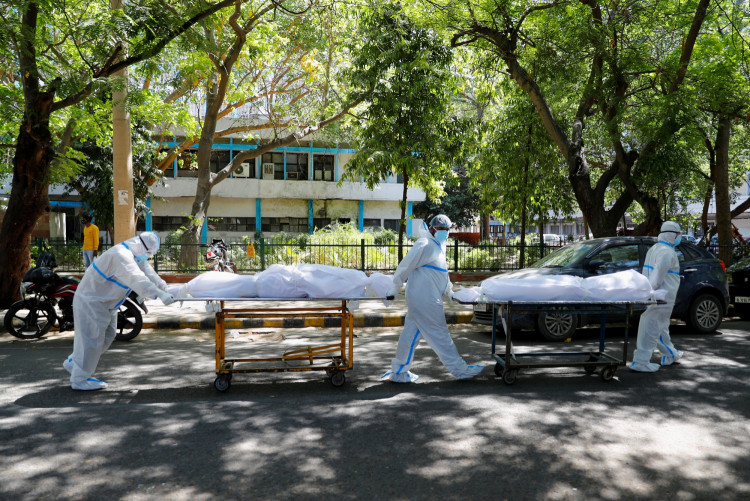China's effort to prevent the proliferation of COVID-19 cases is trapping workers and closing down countless facilities, blocking roadways and waterways, and causing global supply chain delays for everything from electric cars to smartphones.
Though other business owners try to fight it out by isolating employees inside with closed-loop control management, others say it's becoming more difficult to do so because of the extent of local COVID-19 restrictions..
Over 30 Taiwanese enterprises, many of which manufacture electronics parts, revealed on Wednesday that COVID-19 restrictions in eastern China had forced them to halt operations until next week.
Bosch, the German car components manufacturer, announced a day earlier that production at its Shanghai and Changchun plants had been discontinued, while two other units were put into restricted status.
Asia Pacific chief executive of Rheinzink, a German manufacturer of zinc construction products, Sven Agten, stated that logistical issues made a closed-loop control system unfeasible at his Shanghai storehouse and manufacturing sites and that he expects no sales in April and probably May.
"We need someone who can conduct the work in the warehouse and the production facility, and we need a vehicle and a driver. Both are critical components which are unattainable," he said.
Considering minimal case numbers and as the majority of the countries try to co-exist with the virus, China's zero-tolerance stance on COVID-19 is becoming problematic as a result of the extraordinary infectiousness of the less-lethal Omicron subtype.
Trucking has been particularly heavily affected, resulting in long lines, delays, and price increases. According to an executive at a trucking company who requested anonymity, the normal charge for booking a truck from Shandong to Shanghai has more than doubled from 7,000 yuan to 30,000 yuan.
Overseas business organizations have been particularly outspoken regarding their issues, with the European Chamber of Commerce in China sending a letter to the authorities last week stating that almost half of German companies in the country were facing supply chain issues.
China has attempted to mitigate the effects of the restraints by maintaining service at ports and airports and boosting closed-loop production.
However, Refinitiv statistics show that the number of container vessels queuing off Shanghai and adjacent Zhoushan has doubled to 118 since the beginning of April, over three times the amount a year earlier.
Iris Pang, the company's senior economist for China, cautioned Tuesday that China's virus problem could have an impact on global productivity growth. She stated that a crisis in China might be an issue for the entire global economy.





